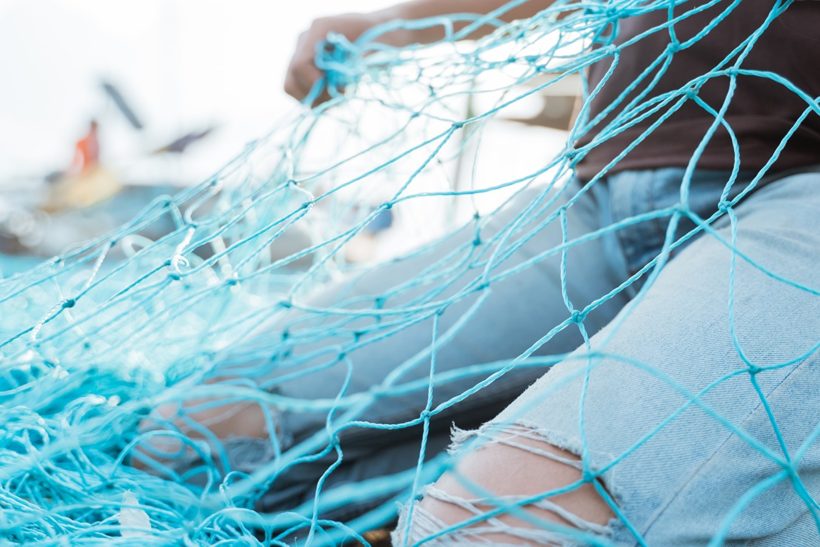Fishermen’s Welfare Alliance welcomes change – although concerns remain about language requirements
The home office announced last week that fishing and seafood processing would be added to the Short Occupation List – a classification that will make recruitment and retention of foreign crews both simpler and cheaper for vessel owners.
The announcement comes after a series of intensive discussions between the Home Office, Defra, the Fishermen’s Welfare Alliance (FWA) and others, both individually and within the context of the Access to Labour Working Group.
It follows the statement by Home Office minister Suella Braverman at the end of April confirming a crackdown on vessels who were not following the transit visa rules for crew employed from aboard, with fines of £20,000 per crewman to be levied if the rules were broken.
Full details of the changes to the regulations will be laid out this week, but industry leaders were hopeful that it would provide a stable route for many skippers and vessel owners, securing not just the viability of vessels at sea, but of the many shore-based jobs in the UK that these vessels support.
Inclusion on the Shortage Occupation List means jobs qualify for visas at a 20% lower salary threshold (£20,960 instead of £26,200). Applicants also pay lower fees (£479 for a three-year visa instead of £625).
Mike Park, chief executive of the SWFPA and a member of the FWA, welcomed the addition of fishermen to the Shortage Occupation List, but said the written English language requirement remained the biggest obstacle to bringing in foreign crew.
“It’s a step forward – we obviously do welcome it,” he told Fishing News. “The lower salary threshold will help some of the smaller vessels, where the wages are perhaps lower.
“It does solve the element of the costs to the sector, but at the end of the day the game-changer would be the change from the requirement for B1 English, which requires written English – that’s still in place.
“That’s the choke. If we could get the requirement down from B1 to A2 [the next lowest grade, which does not require written English skills] we would then solve the problem of bringing fishermen in with the appropriate English qualification.
“As it stands, putting fishermen on the skills shortage list in itself doesn’t solve the problem, but it’s a useful step.”
Making the announcement, immigration minister Robert Jenrick said: “Our seafood and fishing sectors are an integral part of the UK’s heritage and make a vital contribution to our food security and economy.
“We are backing the UK fishing industry with a comprehensive package of support to ensure that they are able to fully benefit from the fish in UK waters. We strongly encourage the sector to engage with this to ensure they can attract the workers they need.”
The prawn fleet, in particular, in Northern Ireland and on the west coast of Scotland has been under threat as a result of the rigid interpretation of the transit visa scheme announced by the home secretary last month. This does not permit fishing within six miles, and also forbids crews from leaving harbour when vessels are tied up.
A number of Northern Ireland prawn vessels have concentrated efforts over the last few weeks in Manx waters in a bid to stick to the letter of the law, but this was clearly only ever a temporary fix.
Fishing News has been told of numerous instances from across the British Isles of skippers and welfare organisations across the UK unable to invite fishermen working on transit visas to social occasions, including Christmas dinners and crew weddings, due to the transit visa rules.
Whilst the large majority of crew working on UK vessels have little difficulty with spoken English – all that is needed to allow them to work efficiently and safely – written skills and the ability to pass tests in writing is a different matter. A large number of crew on transit visas are now being supported with written English training when ashore, but the costs of the exam, and the long delays in confirming exam dates mean that only relatively small numbers of crew have been able to convert to the skilled worker visa to date.
Although highly critical of the transit visa and its use in the UK fishing industry, the International Transport Workers’ Federation (ITF) – which has long campaigned for improved rights and working conditions for foreign crew working on vessels in the UK and Ireland – has called for the Home Office to allow crew in the UK on transit visas to be allowed to apply for new visas without the need to return to their home countries to do so.
The ITF also suggested, shortly before the latest Home Office announcement, that it would support free or subsidised English language training for crew who have been working in the UK industry ‘so that they can overcome the English language proficiency requirements of the new skilled work visa’.
Chris Williams of the ITF said he hoped that those migrant fishers affected by the government’s changes of policy would apply through the new skilled worker visa route and continue contributing to the UK fishing industry ‘but with the full protections of UK employment law this time – as they should have always had’.
Full details of the implications for foreign crew currently employed on transit visas, and their transition to the new employment status, are expected to be discussed at a meeting of the Access to Labour Group to be held later this week.
This story was taken from the latest issue of Fishing News. For more up-to-date and in-depth reports on the UK and Irish commercial fishing sector, subscribe to Fishing News here or buy the latest single issue for just £3.30 here.
Sign up to Fishing News’ FREE e-newsletter here.


Breakthrough on foreign crewing




